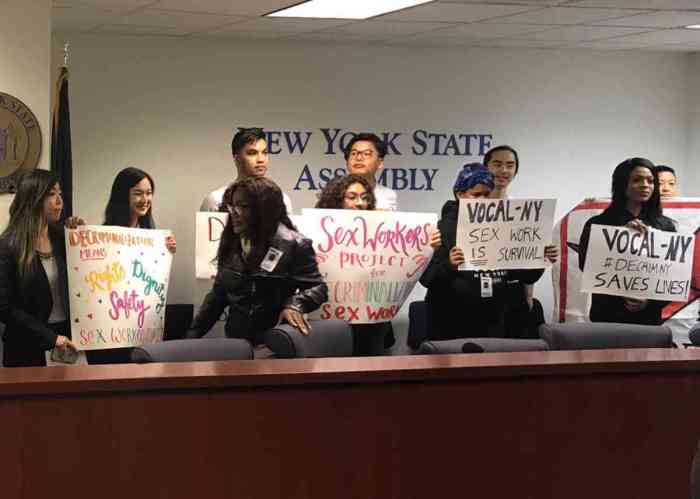A Blue Wave hit New York last week, giving Democrats firm control of the State Senate for the first time in modern memory and offering criminal justice reform advocates — who believe current laws have undermined “the presumption of innocence, fueled mass incarceration, allowed intolerable court delays, and caused countless wrongful convictions” — hope that the new Legislature convening in January will “pass key criminal justice reforms.”
That is the argument being made by five agencies that offer defense services to low-income city residents. The public defender groups sent a letter to Governor Andrew Cuomo, Assembly Speaker Carl Heastie, and Senator Andrea Stewart-Cousins, who is expected to be the new Senate majority leader, urging them to drastically reform a system that has “needlessly upended” the lives of black, Latinx, and other “marginalized people” in New York State. Like the State Health Department when discussing marijuana arrests, these public defenders argue that racist enforcement causes poverty and hampers economic opportunity.
“There wasn’t a sense of urgency in the State Senate,” which “didn’t feel accountable” because “the reality was they were 100 percent white,” said Jared Chausow, an advocacy specialist for the Brooklyn Defender Services, in an interview at a news conference reform advocates held in Foley Square on November 14. With a new Democratic Senate majority, both chambers of the Legislature will be led by officials who come from the communities “that are tired and ready to express their voices for change,” Chausow said.
“Our lives are on the line,” warned Kassandra Frederique, state director of the Drug Policy Alliance. “Progress is not based on what elected officials” say is possible. Change must bring relief to “those that are still incarcerated.”
Frederique called for an end to all arrests for the sale or possession of any drugs.
The package of bills supported by the public defenders would legalize marijuana, “repairing the harm of prohibition,” end cash bail that disadvantages those without the financial means to win their freedom as they await trial, change discovery laws so that prosecutors must quickly provide defense attorneys with the evidence against their clients, and ensure speedy trials. They also want to end “the torture of prolonged solitary confinement” (which would have been curbed by a measure the Assembly already passed) and offer prisoners “fair and meaningful” opportunities for parole. Other proposals the defense attorneys seek include raising the age of eligibility for youthful offender status, restoring free bus service to state prisons, expanding opportunities for family visits, protecting immigrants from deportation, and ending “warrantless ICE arrests in and around courthouses.”
Next year the State Senate will have 39 Democrats (not including renegade Democrat Simcha Felder of Brooklyn), a substantial majority of the 63 members, giving New York State meaningful one-party rule for the first time since before World War II. The end of partisan gridlock has raised reformers’ hopes to a fever pitch.
On another prison reform front, the State Assembly Committees on Corrections, Alcoholism and Drug Abuse, and Health held a November 14 hearing on legislation requiring state prisons and jails to offer medically-assisted treatment of heroin users with methadone or buprenorphine to reduce their craving for opioids. West Side Assemblymember Linda Rosenthal, who chairs the Alcoholism and Drug Abuse Committee, supports the measure.
In a written release about the hearing that Rosenthal issued with reform advocates, Hiawatha Collins, a board member at VOCAL-NY, stated, “Forced withdrawal while incarcerated is torture, painful, and disrupts recovery for people who already use medication-assisted treatment. Medication-assisted treatment is a critical tool for recovery for those who use opioids, and the lack of this life-saving treatment during incarceration increases the risk of relapse and overdose.”



































